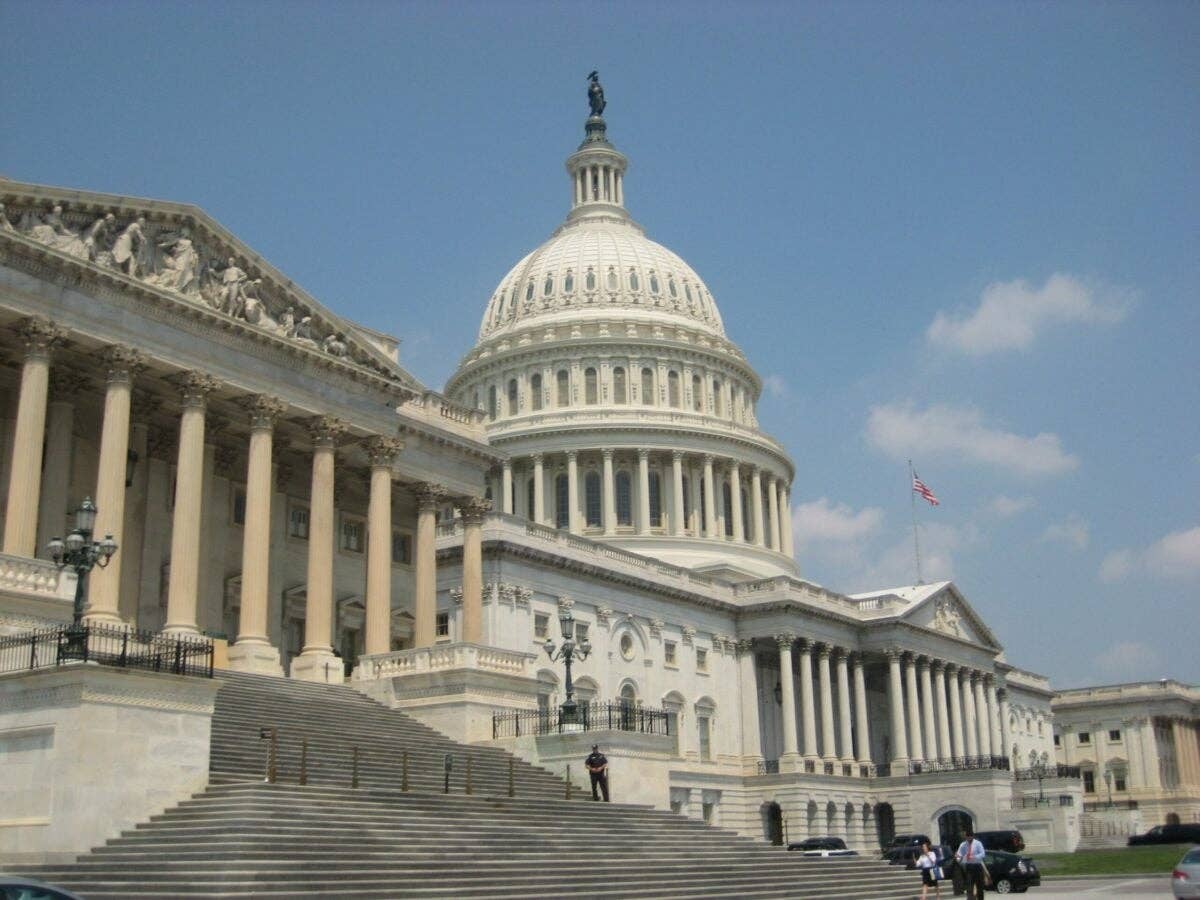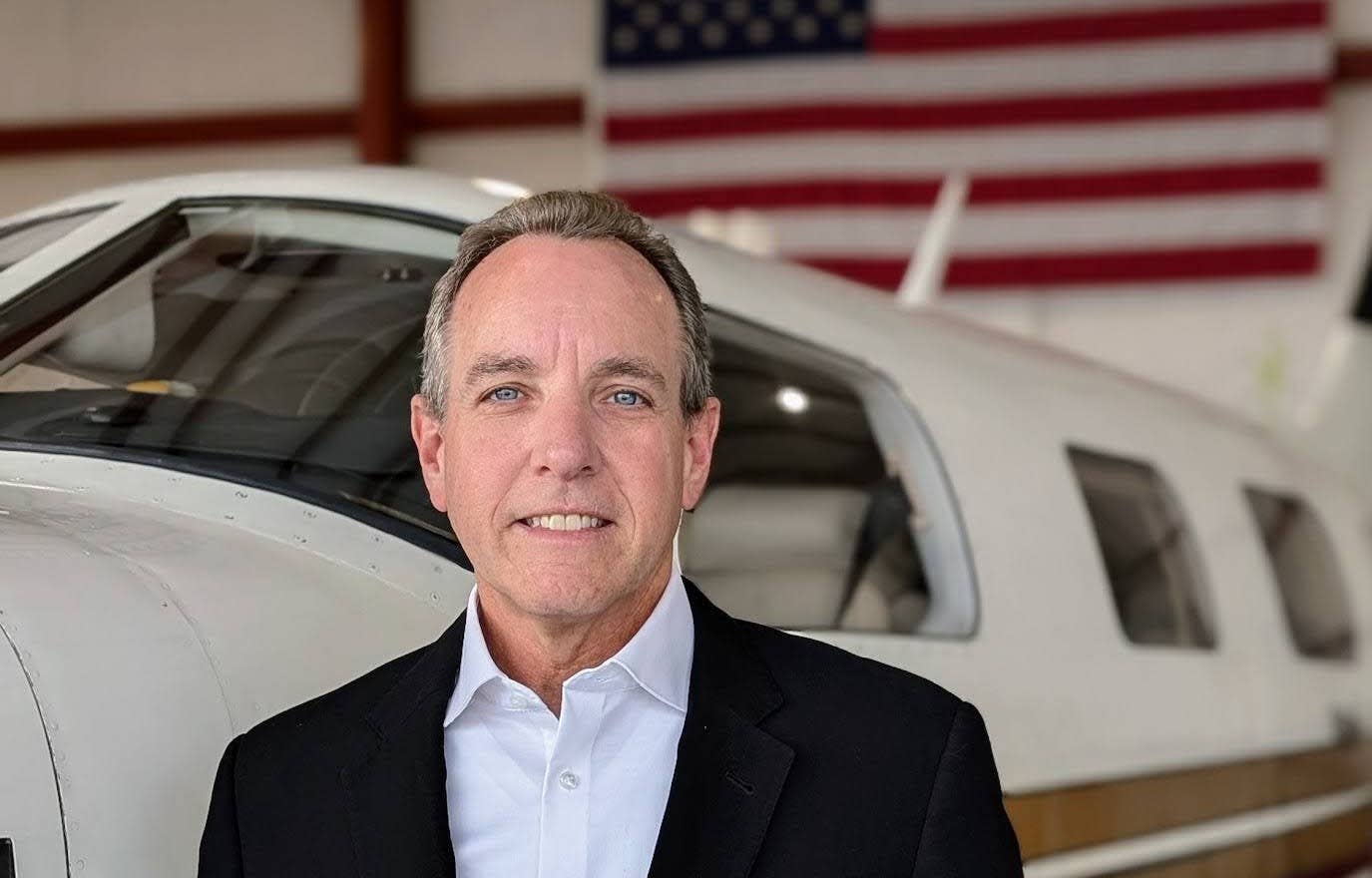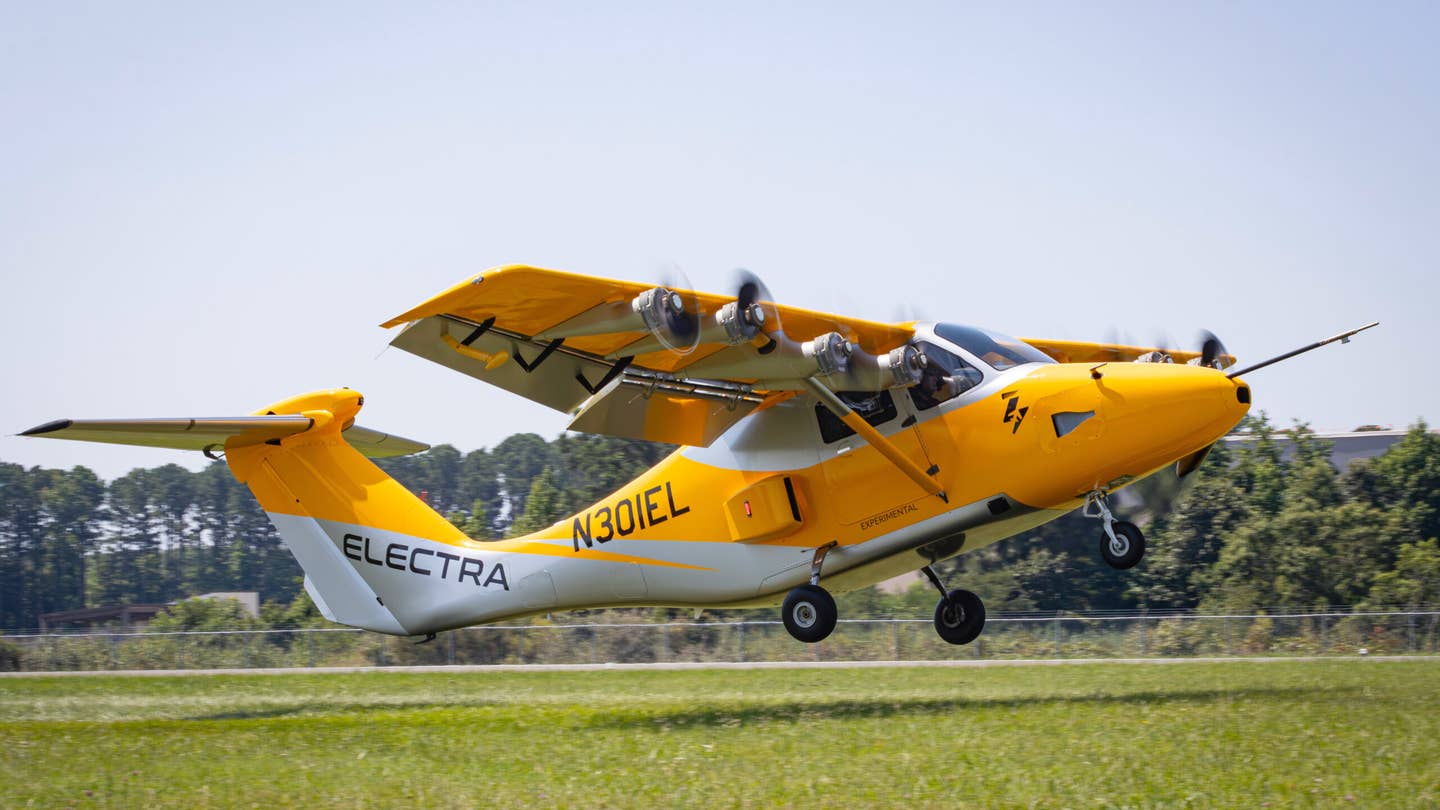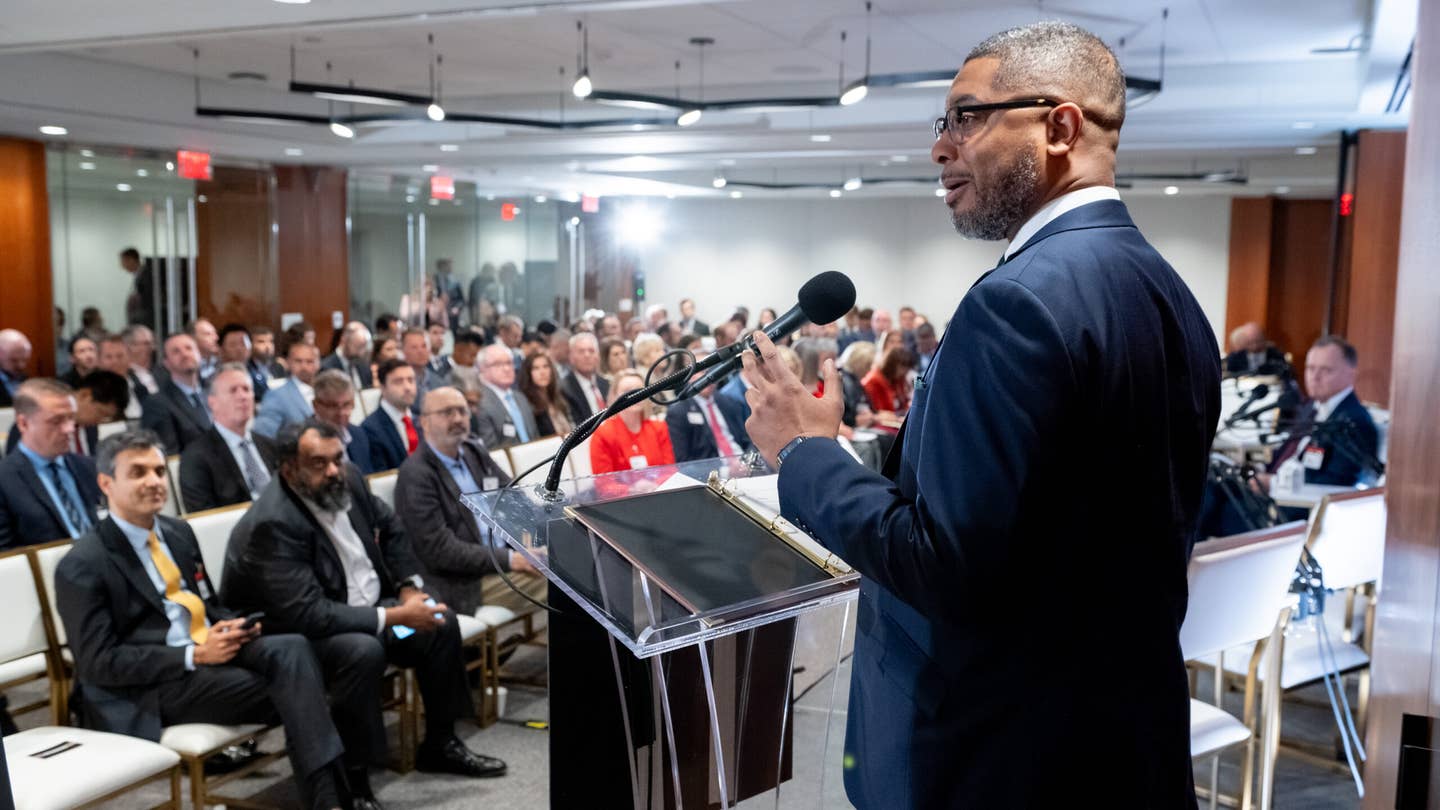Stakeholders Commend Drone, AAM Measures in FAA Reauthorization Bill
With the passage of the FAA Reauthorization Act of 2024 in the U.S. House of Representatives this week, the bill is a signature away from becoming law.

The U.S. House of Representatives passed the FAA Reauthorization Act of 2024 in a vote on Capitol Hill on Wednesday. [Courtesy: USGS]
After what has been months and felt like years, the FAA Reauthorization Act of 2024 looks like it will finally be enacted into law, and drone, advanced air mobility (AAM), and other industry stakeholders are rejoicing.
The U.S. House of Representatives on Wednesday passed the legislation with a 387-26 vote after the Senate approved it last week, meaning the only thing standing in the way of the bill becoming law is a signature from President Joe Biden. The bill would reauthorize the FAA for the next five years.
Drone and AAM industry stakeholders have plenty of reasons to be excited. Within the legislation are several critical provisions intended to move the industries forward and assert the U.S. as a global leader in emerging aviation technology.
For example, the bill would require the FAA, within four months of passage, to issue a Notice of Proposed Rulemaking (NPRM) for drone flights beyond the visual line of sight (BVLOS) of a human operator. A BVLOS regulation has long been sought by the drone industry, as it would allow drones to fly farther than they do with humans directly watching them, opening new use cases.
The bill also contains a mandate for the FAA to publish a final special rule for operations of powered-lift aircraft—a new category that includes eVTOL air taxis—within seven months of passage. It would expand FAA research into preparing the U.S. for the safe integration of electric, hydrogen-electric, and other new aircraft types, including type and pilot certification, the electrification of existing aviation infrastructure, and the installation of vertiports.
Immediate reactions to the legislation’s House passage have been overwhelmingly positive.
The Commercial Drone Alliance (CDA), which comprises U.S. uncrewed aircraft systems (UAS) companies and organizations, offered general praise for the long-awaited bill.
“The FAA Reauthorization Act of 2024 brings much-needed stability to both the FAA and aviation industry and enables the U.S. drone industry to keep pace with other countries," said Lisa Ellman, executive director of the CDA. “This legislation reflects years of dedicated collaboration between lawmakers and industry stakeholders, including the CDA.”
The Association for Uncrewed Vehicle Systems International (AUVSI), a global nonprofit, highlighted a few provisions in particular, such as the progress toward a final BVLOS rule and powered-lift aircraft operations.
“We look forward to working with the FAA and Administrator [Michael] Whitaker on the implementation of congressional mandates on key issues for our industries, including a Part 108 BVLOS rule and a special final rule for powered lift aircraft operations, which will safely unlock scalability and new, high-value commercial drone and AAM operations,” said Michael Robbins, president and CEO of AUVSI.
Pete Bunce, president and CEO of the General Aircraft Manufacturers Association (GAMA), applauded the bill for “furthering air traffic and airport operations through…electric aircraft infrastructure, fostering future improvements in certification and production oversight, expanding sustainability research programs, and following through on initiatives focused on a safe transition to unleaded avgas.”
U.S. lawmakers—on both sides of the aisle—similarly applauded the bill’s passage in the House.
Representative Steve Cohen (D-Tenn.), who authored provisions in the legislation that would invest $1 billion into airport improvement projects, praised the bipartisanship of the House vote and several forward-thinking provisions within the bill.
“Our reauthorization legislation addresses several critical priorities, including…addressing environmental resiliency, strengthening the general aviation sector, [and] ensuring the safe operation and integration of Unmanned Aircraft Systems (UAS) and Advanced Air Mobility (AAM) aircraft,” said Cohen.
Senator Todd Young (R-Ind.) highlighted the bill’s benefits to the domestic drone industry. The legislation would ban federal procurement and use of drones produced by Chinese manufacturers—a longtime target of U.S. lawmakers, who perceive the foreign drones as a threat to U.S. industry and national security. Attempts to restrict Chinese-made drones have been the subject of controversy among industry stakeholders.
“This bill contains many provisions important to the Hoosier [State] aviation industry and the flying public,” said Young. “I am pleased that it passed the Senate in a strong bipartisan vote and urge the House to pass this critical bill.”
Manufacturers of electric vertical takeoff and landing (eVTOL) air taxis have heaped praise on the bill’s AAM provisions.
Joby Aviation singled out language around the type certification of novel aircraft and propulsion sources, training of eVTOL pilots, development of AAM operational rules, and production of sustainable aviation fuel (SAF).
Joby board members Michael Huerta, who was FAA administrator from 2013 to 2018, and Dan Elwell, who served as deputy and acting FAA administrator from 2017 to 2020, went into more detail in a blog post.
“This congress has implemented foundational legislation that sets the stage for U.S. leadership in the next hundred years of aviation,” Huerta and Elwell wrote. “By mandating the FAA to lean into AAM, Congress aims to ensure that the FAA will serve as a driving force for innovation and continued U.S. leadership while keeping safety at the heart of its mission.”
Across the Atlantic, German eVTOL manufacturer Lilium, which is seeking type certification with both the European Union Aviation Safety Agency (EASA) and FAA, spoke highly of the bill’s commitment to modernizing AAM and eVTOL infrastructure in particular.
“We commend the United States Congress for their dedication to electrifying aviation and for recognizing the vital role that our industry will play in the future of transportation,” said Matt Broffman, head of partnerships and public affairs for the Americas at Lilium.
Added Klaus Roewe, CEO of Lilium: “The U.S. is a globally important market for aircraft like the Lilium Jet and we welcome this additional guidance from the U.S. Congress as we seek dual certification in both the U.S. and at home in Europe.”
Similarly, U.S. manufacturer Beta Technologies, which is building a network of proprietary electric aircraft chargers nationwide, praised the legislation’s emphasis on eVTOL infrastructure. The company shared with FLYING last year’s congressional testimony from CEO Kyle Clark, in which Clark lauded several measures. Among them are provisions around building new infrastructure, such as vertiports, as well as the electrification of existing airports.
“This is the first comprehensive piece of federal legislation that specifically advances the priorities of the AAM industry, which feels like a big win,” Beta told FLYING. “It’s the result of a multiyear effort by the whole industry, and we look forward to working with the FAA and DOT to implement these provisions.”
While FAA reauthorization still awaits the president’s signature, the industry, evidently, expects it to happen soon. At first glance, it appears to be a crowd pleaser: the rare piece of legislation that satisfies the demands of all, or nearly all, parties. The next challenge will be to ensure that the implementation of these provisions goes smoothly.
Like this story? We think you'll also like the Future of FLYING newsletter sent every Thursday afternoon. Sign up now.

Subscribe to Our Newsletter
Get the latest FLYING stories delivered directly to your inbox






